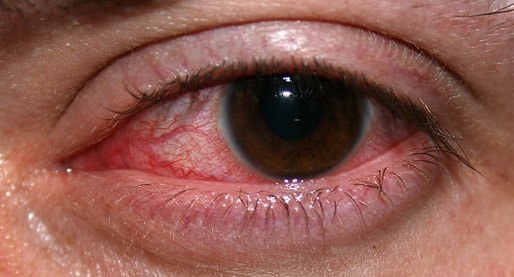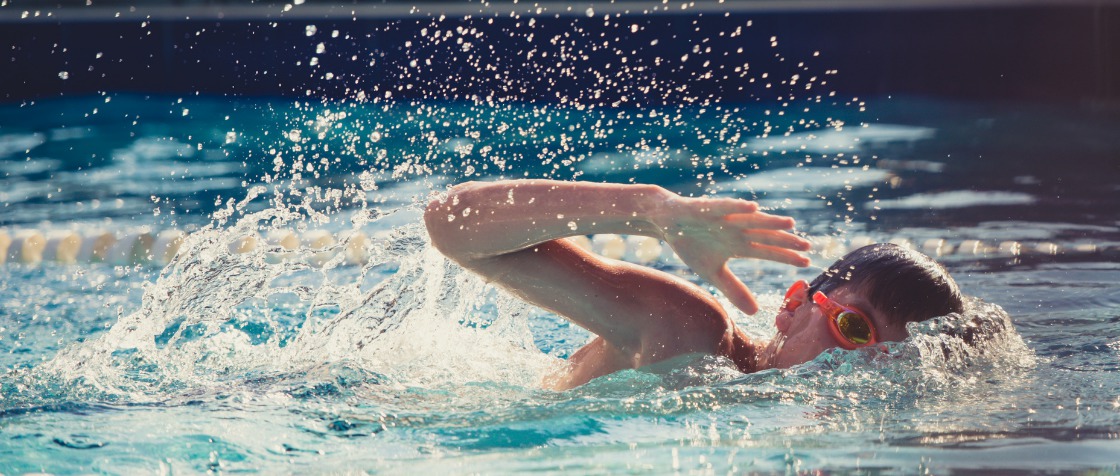Bear in mind that some of the links on this website are affiliate links. If you go through them to make a purchase we will earn a commission at no extra cost to you but helps support our website. Keep in mind that we link these companies and their products because of their quality and not because of the commission we receive from your purchases.
You may have heard that contact lenses are perfect for anyone with an active lifestyle. While that might be true, there are activities where wearing contact lenses is strongly not recommended.
One such activity is swimming.
As a matter of fact, the Food & Drug Administration recommends that contact lenses should not be exposed to any kind of  water at all. Yes, that means all water and it doesn’t matter if it’s in the shower, swimming pools, lakes, hot tubs, oceans, streams, hot springs, water parks, even that tap water coming out of your sink that is safe to drink, all of it. Why?
water at all. Yes, that means all water and it doesn’t matter if it’s in the shower, swimming pools, lakes, hot tubs, oceans, streams, hot springs, water parks, even that tap water coming out of your sink that is safe to drink, all of it. Why?
Table of Contents
Can You Swim With Contacts?
One of the big reasons is because water contains many different kinds of pathogens such as viruses, bacteria, and very dangerous microbes. While these pathogens are technically everywhere, and but the reason you don’t get seriously ill when you drink a mouthful of water from the swimming pool is that your body’s immune system will normally defend you against such pathogens.
If one of those pathogens gets trapped in your contact lenses, that’s a whole different story.
Your contact lenses are designed with a plastic that is hydrophilic (attracts water). Therefore whenever your contact lenses come into contact with water it absorbs that water into the lens along with whatever pathogens that may be in that water. Having those pathogens trapped inside your contact lenses allows them to attack the surface of your eyes.
On any normal day, any pathogens that would get to the surface of your eyes is normally blinked away and the tears flush the pathogens out of your eyes. But since these pathogens are trapped in your contact lenses they are essentially safe from your eyes normal defenses.
Risk Of Swimming With Contacts
In the milder of situations you will only have slightly irritated and itchy eyes, and after you switched to a new contact lens, or properly disinfect your contact lenses you will be okay. 
On the more unlucky side, you could get an eye infection that can lead to serious eye complications. Even though some of the more serious complications are generally rarer, that doesn’t mean you should still be careless. Take a look at some problems that could arise if a pathogen gets trapped in your contact lenses.
- Acanthamoeba Keratitis – This is one of the more serious and scary conditions that could lead to very serious problems. This condition is caused by a single-celled living organism called Acanthamoeba. You can find this organism in natural water sources such as lakes, rivers, the sea, and even tap water. That is even true in countries that have tap water that goes through water treatment plants, there is always still a chance. Acanthamoeba Keratitis could lead to permanent vision loss. If you want to read more you can read about it here.
- Pseudomonas Infection – The Pseudomonas pathogen is one that particularly worries experts due to the pathogen being able to adhere to your contact lens easier than others Pseudomonas is commonly found in soil, water and vegetation. One strain in particular, Pseudomonas aeruginosa is particularly virulence and in many cases leads to permanent eye damage including blindness.
Additional Risk Of Swimming With Contacts
Getting a pathogen trapped in your contact lenses leading to an eye infection is one of the reasons why it is not recommended to wear contact lenses while you are swimming, but it isn’t the only reason you should be cautious.
Soft contact lenses are not designed to be used with water, and whenever contact lenses come into contact with water it swells up, changes shape, and then gets stuck to your eye.
Anyone that has tried to remove a contact lens that is stuck to your eye knows that it’s not a very easy task and comes with the risk of scratching your cornea. Your cornea is extremely sensitive and even the smallest scratch could feel as if you have a grain of sand lodged in your eyes.
Another risk of swimming with contacts is the fact that they might be washed out of your eyes. Your contact lenses are basically held onto your eyes by a thin layer of liquid between the contact lenses and the surface of your eye. A big rush of water can easily flush your contact lenses right out and if you don’t have back up contacts or glasses handy than you’re out of luck. This has happened to me before on a beach trip when I was a teenager, definitely not fun but I can tell you I never did it again.
If You MUST Wear Your Contacts
It is a bit unrealistic to think out of all of the contact wearers in the world there isn’t going to be anyone who is going to swim  with their contacts in. If you are like me who likes to be able to see while they are swimming, there are definitely precautions you can take which will help reduce the risk of any complications you may encounter.
with their contacts in. If you are like me who likes to be able to see while they are swimming, there are definitely precautions you can take which will help reduce the risk of any complications you may encounter.
Having a good quality pair of goggles can reduce the chances of you being exposed to a pathogen that will cause an eye infection. These goggles should fit snuggly around your eyes without leaking in any kind of water. Afterward you should still disinfect your contact lenses, regardless if you got water splashed on them or not, if you are wearing extended-wear contact lenses do not continue to wear them without first disinfecting them. I personally recommend just throwing them away after you go swimming and put on fresh lenses, it’s really just not worth the risk.
Alternative Options For Swimming
Unfortunately, there really isn’t too many other options to be able to see while you are swimming. I have used prescription sunglasses before while swimming, but water gets on the lenses and it’s not too clear underwater.
One alternative option is prescription goggles, these goggles come in a range of different powers and have UV protection to protect your eyes from the harmful UV rays from the sun. However, if you have a more complicated prescription this might not be an option for you.
If you are a professional swimmer, whether it be your job or you are just an athlete you may want to talk to your doctor about other options such as laser eye surgery.
When to Seek Help
Even when you are practicing all of the best precautions, the risk is still there anytime you swim with your contacts on. If you see redness, pain in your eye, itchiness, or swelling not too long after swimming, see your eye doctor immediately and mention that you had been with swimming with contacts on. Any situation needs to be addressed immediately, or else it could lead to a much more serious and complicated situation.
Takeaway
The best way to avoid getting a pathogen stuck in your contacts is to just remove your contact lenses before you go swimming, But, this may not always be possible so be sure to have that waterproof goggle handy to keep your contacts from being exposed to the water and exposing you to the pathogens.
Just keep in mind that the risk is still there even if you are doing your best to keep the water out of your eyes. It only takes one tiny drop to come into contact with your contact lenses for a pathogen to get stuck in there. Keep a lookout for any potential signs of an infection and contact your eye doctor right away.
I would love to hear everyone’s thoughts on this topic, leave me a comment below Thank you for stopping by and if you enjoyed this article don’t forget to share it through your favorite social media channels with the buttons below.

